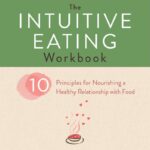As an Amazon Associate I earn from qualifying purchases.

9 Effective Natural Stress Relief Techniques
Introduction to Stress and Its Effects
Stress is a physiological and psychological response when an individual perceives a threat or challenge. It can originate from various sources, including work-related pressures, personal relationships, or major life changes. Common causes of stress are multifaceted; they often encompass external factors such as deadlines, financial obligations, or academic demands, and internal factors including self-imposed expectations and fear of failure. Recognizing these stressors is crucial, as their impact can manifest in significant ways affecting overall health.
The effects of stress can be both immediate and long-lasting. When stress levels become elevated, the body responds by releasing stress hormones such as cortisol and adrenaline, which prepare the body for a fight-or-flight response. While this reaction can be beneficial in short bursts, chronic stress can lead to a myriad of health issues including anxiety disorders, depressive symptoms, and physical ailments such as hypertension or gastrointestinal problems. Furthermore, prolonged exposure to stress can weaken the immune system, making individuals more susceptible to illness.
Given the profound impacts of stress on both mental and physical health, it is imperative to explore effective and natural ways to manage it. Holistic approaches to well-being have gained increasing attention as individuals seek to reduce reliance on pharmaceuticals and aim for sustainable lifestyle changes. Techniques such as mindfulness, yoga, and various forms of physical exercise not only mitigate stress but foster an overall sense of balance and tranquility. As society embraces the intricacies of health, recognizing stress and its ramifications becomes vital in developing comprehensive strategies for better well-being.
Understanding Natural Stress Relief
Natural stress relief encompasses a wide array of techniques aimed at alleviating stress and promoting a sense of well-being without the use of pharmaceutical interventions. Unlike conventional stress management methods that often rely on medication or therapy, natural stress relief emphasizes holistic approaches, emphasizing the connection between the mind, body, and environment to foster relaxation and rejuvenation.
Common examples of natural stress relief strategies include practices such as mindfulness meditation, yoga, deep breathing exercises, aromatherapy, and engaging with nature. These techniques are grounded in the philosophy that individuals can tap into their resources to manage stress effectively. By incorporating these natural methods into daily routines, individuals can develop healthier coping mechanisms that not only address immediate feelings of stress but also contribute to long-term emotional resilience.
The benefits of adopting natural stress relief techniques are multifaceted. Research indicates that these methods can reduce levels of the stress hormone cortisol, enhance overall mental clarity, and improve emotional regulation. Moreover, many of these approaches encourage physical activity, foster social connections, and promote a sense of purpose. These factors collectively contribute to a more balanced lifestyle conducive to overall well-being.
Furthermore, natural stress relief techniques can assist in cultivating a deeper awareness of one’s internal state, enabling individuals to identify stress triggers and respond to them more effectively. This self-awareness can lead to improved interpersonal relationships and a more profound sense of satisfaction in everyday life. In essence, embracing natural stress relief offers an empowering path toward managing stress that underscores self-sufficiency and personal growth, in contrast to reliance on medical solutions.
Mindfulness Meditation
Mindfulness meditation is a powerful technique for stress relief that has gained increasing recognition in today’s fast-paced world. It involves paying attention to the present moment, allowing individuals to observe their thoughts and feelings without judgment. This practice is not only accessible to everyone but is also rooted in a wealth of scientific research indicating its benefits for mental health.
For beginners, starting a mindfulness meditation practice can be both simple and effective. One of the first steps is to find a quiet and comfortable place where distractions are minimized. Begin by sitting in a relaxed position with your back straight and your hands resting on your knees or lap. Set a timer for five to ten minutes to avoid worrying about the time while meditating. Focus your attention on your breath, noticing the rhythm and sensations as you inhale and exhale. When thoughts arise, gently redirect your focus back to your breathing. The key to mindfulness meditation is to cultivate a non-reactive awareness of your thoughts, allowing them to come and go without engagement.
Numerous studies have demonstrated the calming effects of mindfulness meditation, highlighting its ability to reduce stress and improve emotional regulation. By practicing mindfulness, individuals can decrease levels of cortisol, a hormone associated with stress. Regular meditation enhances self-awareness and contributes to a more positive mindset, making it easier to cope with daily stressors.
Incorporating mindfulness into your daily routine is a gradual process. Start with just a few minutes each day, and gradually increase the duration as you become more comfortable. Consider integrating mindfulness into everyday activities, such as eating or walking, by fully engaging with the sensations involved. This approach can turn mundane tasks into opportunities for mindfulness practice, enriching your life and reducing stress levels over time.
Physical Activity and Exercise
Engaging in physical activity and exercise is one of the most effective natural stress relief techniques. Regular exercise not only enhances physical health but also plays a crucial role in managing stress levels. When individuals participate in physical activities, the body releases endorphins, neurotransmitters that promote feelings of happiness and relaxation, counteracting the impact of stress hormones.
Various forms of exercise can help reduce stress. Cardiovascular exercises, such as running, swimming, or cycling, are particularly beneficial as they elevate heart rate, improve circulation, and release endorphins. Strength training, yoga, and even activities like dancing also contribute positively to mental well-being. These forms of exercise not only alleviate anxiety but also enhance mood and boost self-esteem.
For busy individuals, incorporating physical activity into daily routines can be challenging yet achievable. One effective strategy is to schedule workouts just as one would an important meeting. Aim for at least 150 minutes of moderate aerobic activity each week, breaking it down into manageable segments. This can include short walks during lunch breaks or opting for stairs instead of elevators. Additionally, integrating physical activity into social gatherings, such as group sports or hiking with friends, can motivate while fostering relationships.
Furthermore, setting realistic and achievable fitness goals can also make physical activity feel less daunting. Starting with small steps—such as committing to a 10-minute walk daily—can lead to greater consistency. Over time, individuals can gradually increase the intensity and frequency of their workouts, making it easier to cultivate a holistic approach to stress relief. Ultimately, making physical activity a priority not only combats stress but also enhances overall health and well-being.
Breathing Exercises
Controlled breathing techniques offer a powerful method for stress relief, leveraging the connection between breath and the body’s physiological response to stress. These exercises can activate the parasympathetic nervous system, which promotes a state of calm and relaxation. By focusing on the breath, individuals can reduce anxiety, lower heart rates, and improve overall emotional well-being.
One effective technique is diaphragmatic breathing, also known as abdominal breathing. This involves taking deep breaths that fully engage the diaphragm. To practice this technique, find a comfortable position, either sitting or lying down. Place one hand on your chest and the other on your abdomen. Inhale deeply through your nose, allowing your abdomen to rise while keeping your chest relatively still. Exhale slowly through your mouth, feeling your abdomen fall. Engaging in this exercise for five to ten minutes can significantly enhance one’s state of relaxation.
Another beneficial practice is the 4-7-8 breathing technique, which can be particularly effective during moments of heightened stress. This method encourages focus and regulation of breath patterns. To begin, inhale quietly through the nose for a count of four. Hold the breath for a count of seven and then exhale completely through the mouth, making a whooshing sound for a count of eight. Completing this cycle for four breaths can create a profound sense of tranquility.
Implementing regular breathing exercises into one’s daily routine can result in improved emotional resilience and diminish the effects of stress. These techniques can be performed anywhere and at any time, making them a practical tool for managing day-to-day pressures. The ability to calm oneself through breath is an accessible skill that promotes well-being and supports a healthier lifestyle.
Nature Therapy
Nature therapy, often referred to as ecotherapy, is an increasingly popular approach to alleviating stress and promoting overall mental health. This method entails immersing oneself in natural environments and harnessing the restorative power of nature to mitigate the impact of daily stressors. Numerous studies have indicated that spending time outdoors can evoke a sense of calm, reduce anxiety, and enhance emotional well-being. The connection to nature nurtures an awareness that can lead to a greater appreciation for life and a more profound sense of personal fulfillment.
The physiological benefits of engaging with nature include reduced heart rates, lower blood pressure, and diminished levels of stress hormones, such as cortisol. These changes occur as individuals interact with tranquil environments, promoting relaxation and rejuvenation. Psychologically, being in nature can improve mood, sharpen focus, and increase feelings of happiness. Exposure to greenery and fresh air has been associated with decreases in feelings of loneliness and depression, fostering a positive outlook on life. The healing aspects of nature make ecotherapy a vital tool in stress-relief practices.
Incorporating nature therapy into one’s daily routine can be relatively simple. Individuals can schedule regular walks in parks, take up hiking, or spend quiet moments in their gardens or backyards. Mindful activities such as yoga or meditation in outdoor settings can heighten the experience, further establishing a connection to the environment. For those unable to access vast natural spaces, even short trips to local parks or outdoor cafes can provide necessary therapeutic interaction with nature. By prioritizing outdoor time, individuals not only experience the immediate benefits of stress reduction but also foster a lifelong relationship with the natural world that promotes ongoing well-being.
Herbal Remedies and Supplements
Herbal remedies and supplements have gained popularity as a natural approach to managing stress levels. Various herbs, such as ashwagandha, valerian root, and chamomile, have been studied for their potential calming effects. Ashwagandha, an adaptogen, helps to stabilize the body’s response to stress by reducing cortisol levels. This herb has been widely recognized for its effectiveness in enhancing mood and reducing anxiety. On the other hand, valerian root, often used in tinctures or tea, is primarily known for its sedative properties, making it suitable for those experiencing sleep disturbances related to stress. Chamomile, frequently consumed as herbal tea, is renowned for its relaxing effects, promoting a sense of calm and aiding in sleep quality.
Moreover, supplements containing omega-3 fatty acids, found in fish oil, are also recommended for stress management due to their role in enhancing mental health. These fatty acids contribute to improved mood and cognitive function, thus combating the effects of stress. Similarly, magnesium is a mineral shown to alleviate anxiety and tension; therefore, incorporating magnesium-rich foods or supplements can further assist in regulating stress levels.
However, it is essential to approach herbal remedies with caution. Each individual’s body may react differently to herbs and supplements, leading to potential side effects, such as digestive issues or allergic reactions. It is advisable to consult with a healthcare provider before starting any new supplement regimen, particularly if one is currently taking medications or has underlying health conditions. Appropriate dosage, timing, and the form in which these herbs are consumed also play a significant role in their effectiveness. Being mindful of these aspects will ensure the safe and effective use of natural stress-relief techniques through herbal remedies and supplements.
Journaling for Stress Relief
Journaling serves as a powerful tool for managing stress, allowing individuals to articulate their thoughts and emotions in a structured manner. This practice not only aids in emotional release but also promotes mental clarity, enabling users to navigate their feelings more effectively. By consistently putting pen to paper, one can identify stress triggers and develop coping strategies that enhance overall well-being.
One popular technique is gratitude journaling, which involves writing down daily entries that reflect on what one is thankful for. This practice shifts focus from stressors to positive aspects of life, fostering a mindset of appreciation. Research has shown that regularly acknowledging gratitude can improve emotional health, reduce anxiety, and increase resilience, making it an invaluable tool for stress management.
Another effective method is expressive writing, which encourages individuals to explore their thoughts and feelings without restrictions. In this technique, people are prompted to write about their experiences and emotions related to stressors, often for a specified amount of time. This stream-of-consciousness approach can uncover underlying issues and lead to insights that facilitate emotional processing. Many users report feeling a significant release of pent-up emotions after such sessions, contributing to stress relief.
Moreover, journaling can serve as a reflective practice, allowing individuals to track their mental health over time. By reviewing past entries, one can recognize patterns in their emotional responses and identify changes, both positive and negative. This self-reflection is essential for developing emotional intelligence and enhancing stress management skills.
Incorporating journaling into a daily routine can yield substantial benefits, providing a calming outlet for expressing thoughts, clarifying feelings, and promoting overall emotional wellness. With consistent practice, journaling can transform into a valuable resource in one’s arsenal for tackling everyday stressors.
Creating a Relaxation Routine
Establishing a personalized relaxation routine is essential for effectively managing stress and enhancing overall well-being. A consistent practice that incorporates various stress-relief techniques can lead to increased resilience against daily pressures and promote a healthier lifestyle. To create an effective routine, begin by identifying the specific methods of relaxation that resonate with you. This may include meditation, yoga, deep-breathing exercises, or even nature walks. Tailoring these techniques to fit your preferences will encourage commitment and consistency.
Once you have selected your preferred techniques, determine a suitable time each day to dedicate to your relaxation routine. Whether it is early in the morning to set a positive tone for the day or in the evening to unwind after daily activities, consistency is key. Aim to allocate at least 15-30 minutes of uninterrupted time. This approach fosters a sense of importance around self-care and allows for deeper engagement in the relaxation process.
Furthermore, be open to adaptability in your routine. Life is dynamic, and schedules may change. Therefore, it is essential to modify your relaxation practice as necessary while maintaining the fundamental techniques that provide relief. Experiment with different methods and timings to discover what works best for you, ensuring that self-care remains accessible even during busy periods.
Incorporating your relaxation routine into your lifestyle is a proactive way to address stress and prioritize self-care. Over time, you may find that engaging in these practices becomes a natural part of your day. Committing to a consistent, adaptable relaxation routine not only aids in reducing stress but also enhances your overall quality of life, fostering a sense of calm and clarity amidst daily challenges.
Amazon and the Amazon logo are trademarks of Amazon.com, Inc or it's affiliates.
Related Posts
- Reduce Stress with Fitness
How to Reduce Stress with Fitness Table of Contents Improve Mood Stress has become an…
- Best Tips to Stop Stress Eating
Best Tips to Stop Stress Eating In today's fast-paced world, stress has become an inevitable…
- Positivity Its Impact on Health
Positivity and Its Impact on Health Positivity: The Path to a Healthy Lifestyle and Overcoming…










